Claire Habbershaw (piano) – Bethany Horak-Hallett (mezzo-soprano)
Lunchtime Recital
Wednesday 4 March 2020 – 1:00 – 1:40 pm
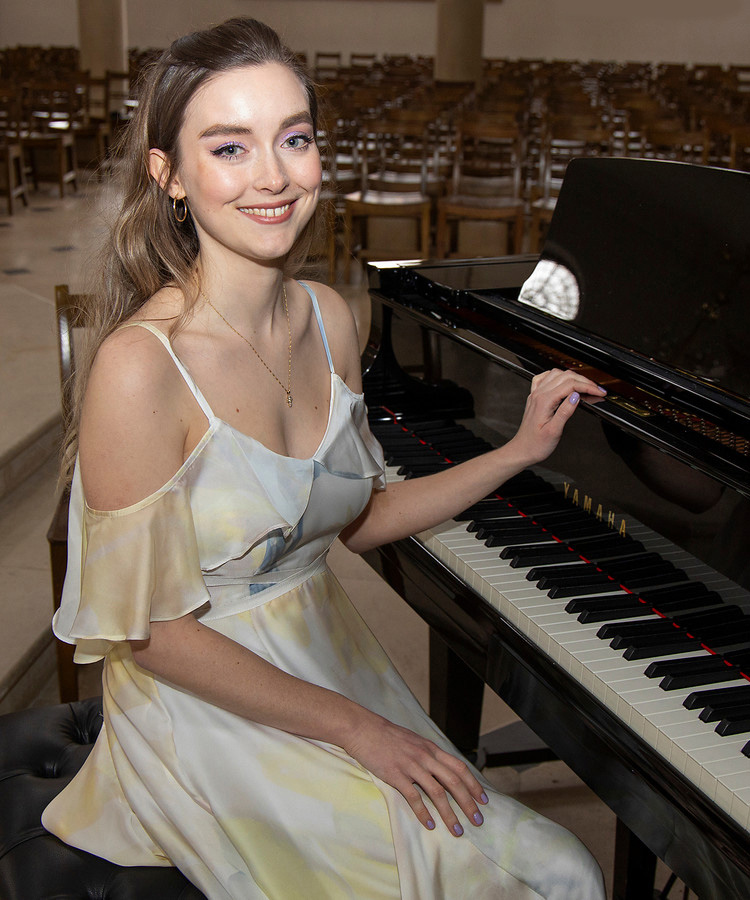 |
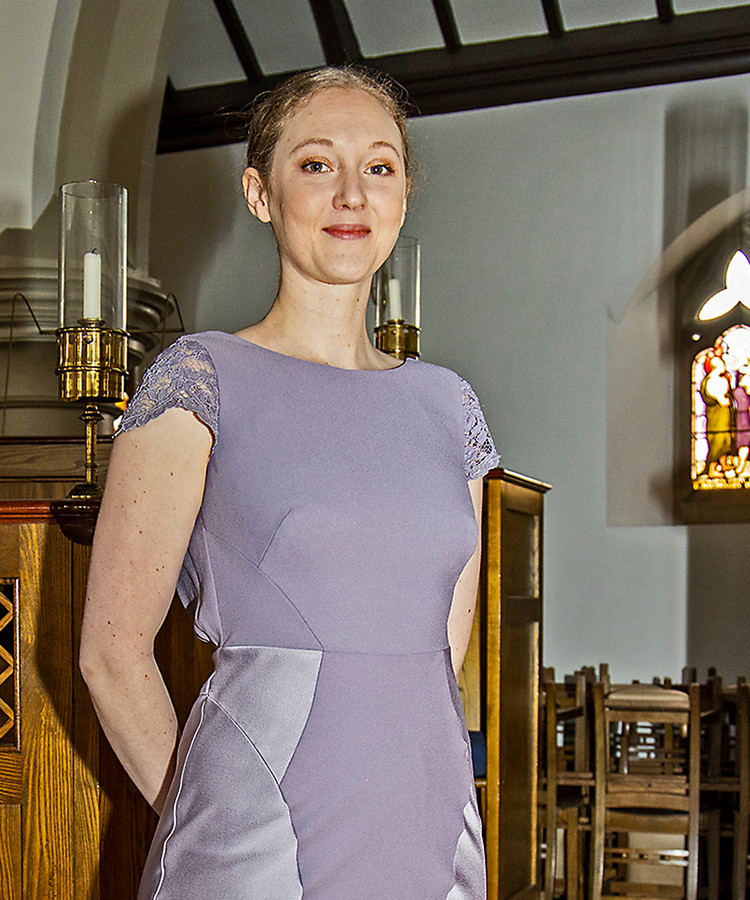 |
On Wednesday 4th March 2020, we welcomed Bethany Horak-Hallett (mezzo soprano) and Claire Habbershaw (piano) to Brentwood Cathedral for a beautiful programme of Romantic Lieder and other songs from the vocal repertoire. The musicians’ interesting biographies can be found at the end of this review via links to their websites.
On arrival, we were given translations of the German songs with their programmes, to enhance our appreciation and understanding of the music; and after a warm welcome from Nina How, the recital began with ‘Sechs Lieder Op. 13’ (Six Songs Op. 13) by the German Romantic concert pianist and composer Clara Schumann (1819-1896). Married to Robert Schumann, Clara (née Wieck) was considered by many to be one of the most distinguished composers of the Romantic era, with piano concertos, chamber music, choral works and lieder to her name; she was also one of the first pianists to perform concertos from memory. Her close relationship with Brahms, who greatly admired her and supported her in difficult times, is well documented. The year 2019 was the 200th anniversary of Clara Schumann’s birth, and her music is becoming increasingly popular.
Today’s song cycle (published in 1844) was opened serenely by Bethany and Claire with ‘I stood in dark dreams’, depicting poignant thoughts of lost love, then leading to a brief tale of unrequited love in the lilting ‘They loved one another’. The musical and poetic sentiments were immediately in safe hands with Bethany’s expressive voice and clear diction, supported by Claire’s most sensitive and impeccable accompanying, as they continued with a mystical journey through nature in ‘Love’s magic’, followed by the soothing lullaby styled ‘The moon comes silently’. The melancholic ‘In your eyes’ was sung in a sweet and sympathetic manner, before the last song, ‘The quiet lotus flower’, brought this mesmerising cycle to a close.
The recital continued with the last song from another ‘Sechs Gesänge Op 13’, namely ‘Sie kam zum Schloß gegangen’ (‘She came to the castle’) by the Austrian composer and conductor Alexander Zemlinsky (1871-1942), who was admired by Stravinsky and by many musicians for his interpretation of Mozart’s works. This song tells an enchanting story, evoking a haunting atmosphere reflected in the vast range of vocal intervals, which was delivered with careful intonation and huge warmth. There were echoes of Richard Strauss’s ‘Four last songs’, before a quiet conclusion.
If music enthusiasts were hoping for a song by Franz Schubert (1797-1828), they were not disappointed. ‘Im Abendrot’ D.799 (‘In the evening glow’), deeply reverent and contemplative in text and musical tonality, gave us an exquisitely sung aria from the late Classical/early Romantic era, the acoustics of the Cathedral providing another spiritual dimension.
Bethany and Claire next performed two songs from ‘Italienisches Liederbuch’ (Italian Song Book) by another Austrian composer, Hugo Wolf (1860-1903), well known for his Lieder and influenced by the music of Richard Wagner. ‘Who called you, then?’ and ‘Tonight I rose at midnight’, again sung in German, were from Wolf’s collection of forty-six songs, written between 1890 and 1896. Translated, the poems depict heartfelt emotions and the intensity of love, performed with conviction and empathy through melodic vocal phrasing and rich harmonies in the accompaniment.
We then heard ‘Evening Hymn’ by the well-known English Baroque composer Henry Purcell (1659-1695), contrasting beautifully with the previous pieces and interpreted in a relaxed and dignified manner. Bethany’s voice seemed particularly suited to this soulful aria, holding our attention through to the heavenly forty or more bars of its Hallelujah finish.
Bethany and Claire ended their concert with three songs from ‘Folksong Arrangements’ by Benjamin Britten (1913-1976): ‘The Sally Gardens’, ‘The Last Rose of Summer’ and ‘Sweet Polly Oliver’ – all traditional songs, easily recognisable, with uplifting twentieth century Britten arrangements. Melodic phrasing and rhythm were perfectly balanced between voice and piano, bringing their performance to a lively climax, with huge applause from a delighted audience.
On behalf of Nina How, who organises all the recitals, and Andrew Wright, Director of Music at Brentwood Cathedral, we would like to thank Bethany Horak-Hallett and Claire Habbershaw for their inspiring recital, and also for their wonderfully informative talks between pieces. We wish them both continued success and hope they will soon return to Brentwood Cathedral.
Julia Bentham
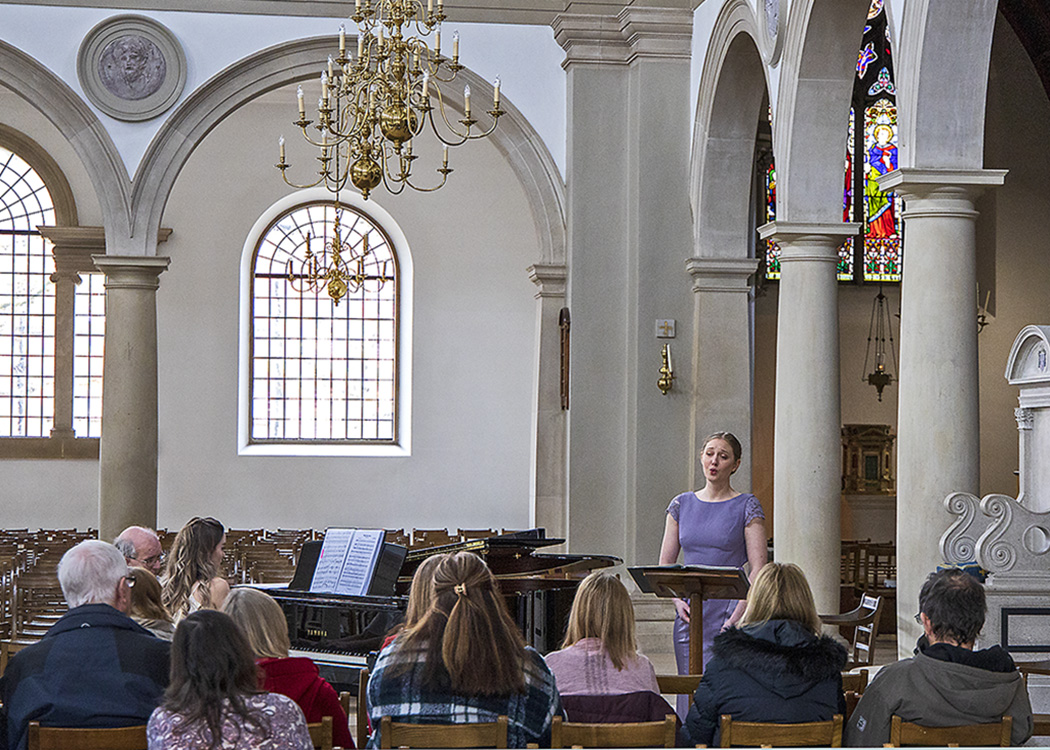 |
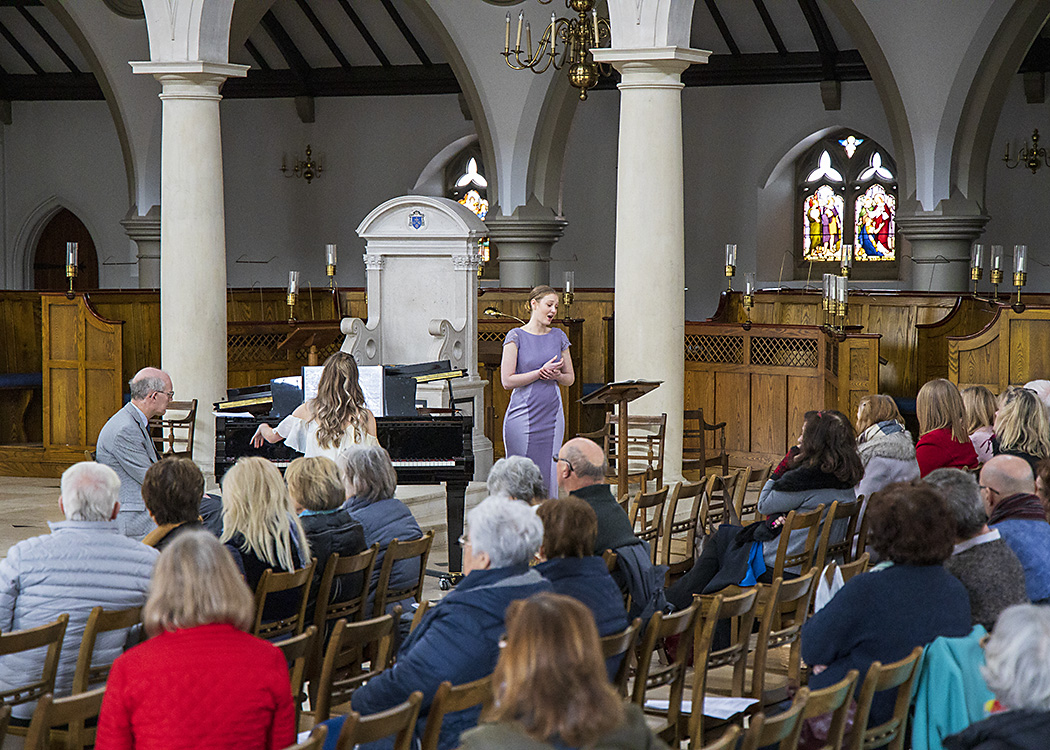 |
Programme
| Clara Schumann (1819-1896) | Sechs Lieder Op.13
1. Ich stand in dunkeln Träumen |
| Alexander von Zemlinsky (1871-1942) | Sechs Gesänge Op. 13
6. Sie kam zum Schloss gegangen |
| Franz Schubert (1797-1828) | Im Abendrot D.799 |
| Hugo Wolf (1860-1903) | From ‘Italienisches Liederbuch’
Wer rief dich denn? Heut’ nacht erhob ich mich um Mitternacht |
| Henry Purcell (1659-1695) | Evening Hymn |
| Benjamin Britten (1913-1976) | From ‘Folksong Arrangements’
The Salley Gardens The Last Rose of Summer Sweet Polly Oliver |
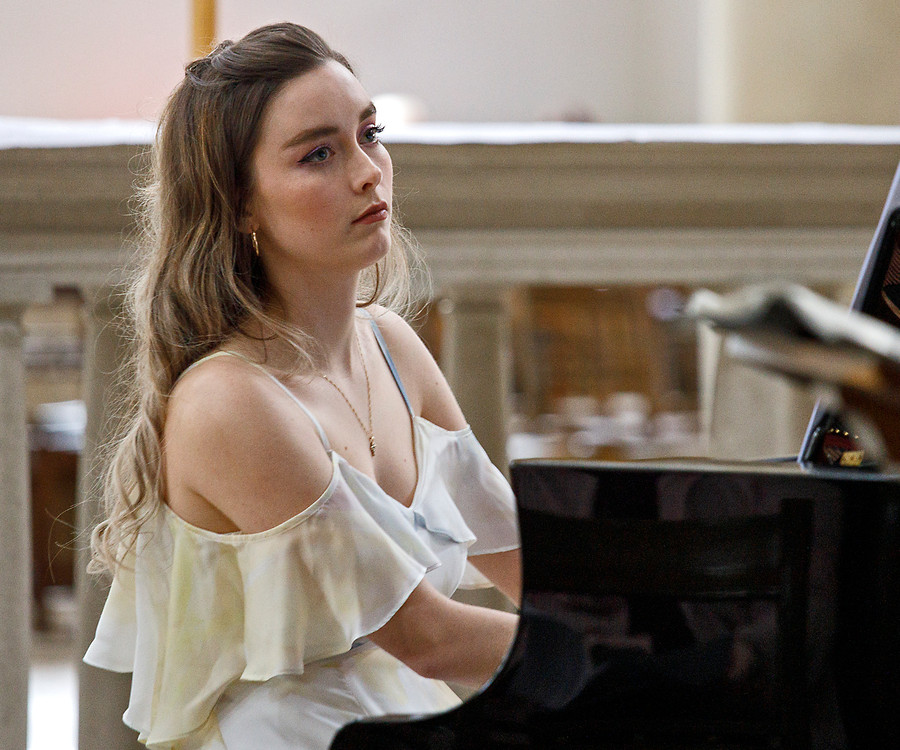 |
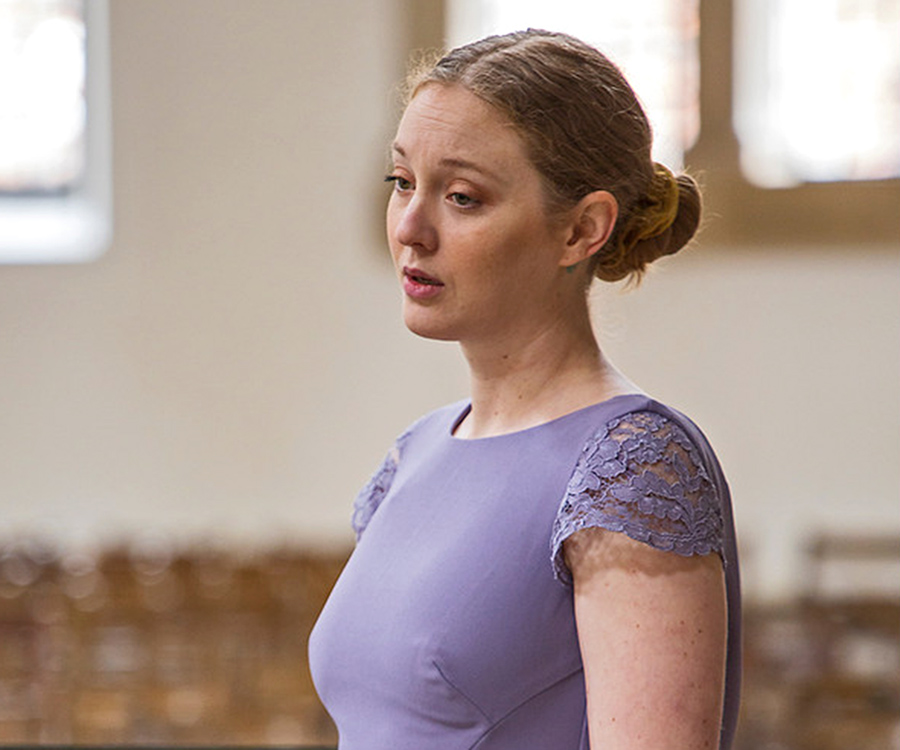 |
| Biographical Notes on Claire’s Website | Biographical Notes on Bethany’s Website |
Refreshments were served in the SONG SCHOOL afterwards
Admission is free, but there will be a retiring collection to help to fund these recitals. If you are able to use Gift Aid this will increase the value of your donation by 25% at no extra cost to you
Photos – Graham Hillman
Brentwood Cathedral Music Dept©2023
